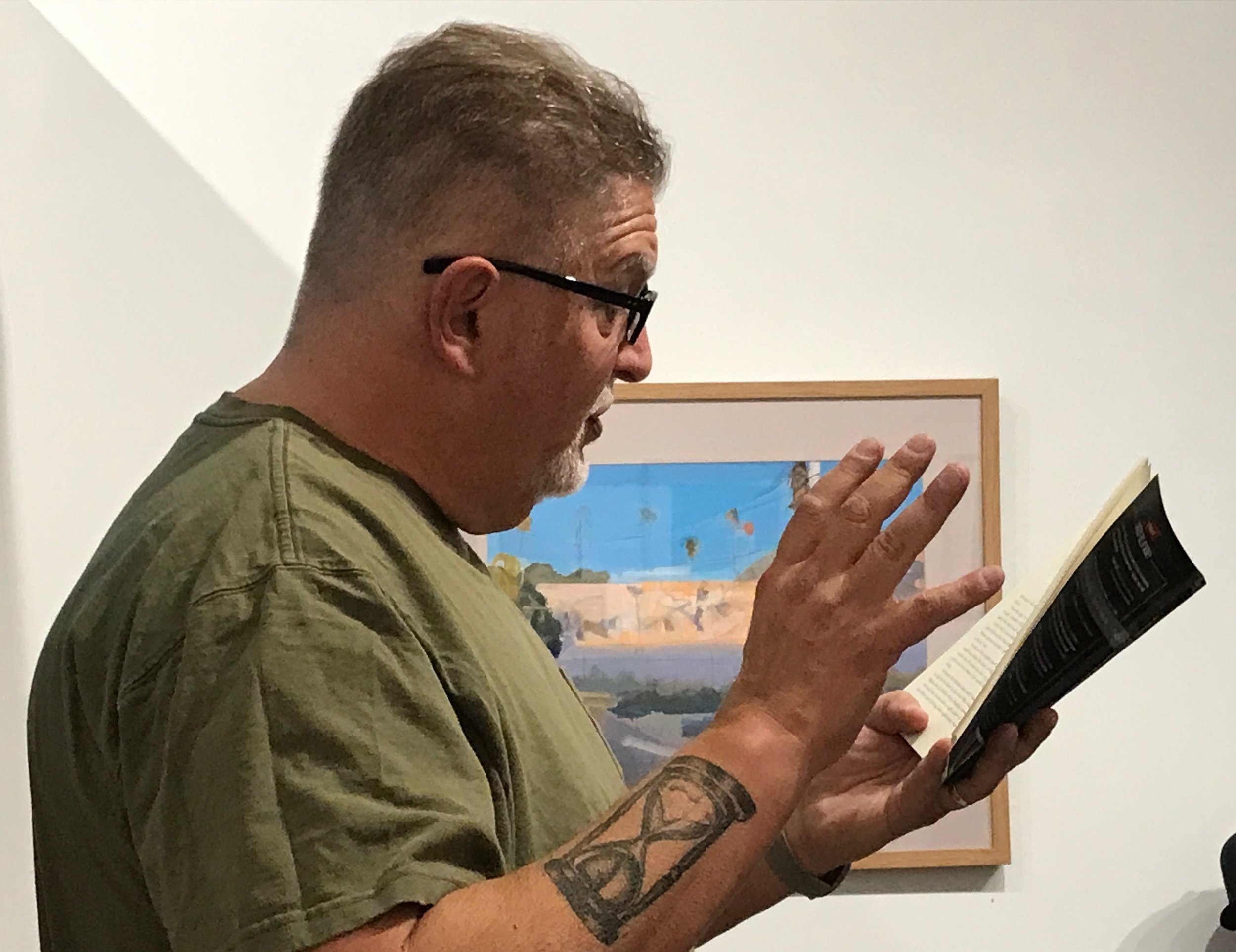Martin Kleinman is a New York-based storyteller. He has captivated audiences in venues from KGB to Brooklyn’s Union Hall, where he brings his tales to life in true ‘round-the-campfire tradition.
Martin’s debut collection of short fiction, Home Front, explores the lives of a cross-section of New Yorkers, from just-arrived young up-and-comers, to NYC-born-and-raised veterans. Each piece communicates how dynamic, difficult and dangerous New York City was – and still can be. In Martin’s hands, The City becomes a key character in each story.
His second story collection, A Shoebox Full of Money, was published in 2021.
His new collection, When Paris Beckons, is now available.
Born and raised in New York City, Martin currently resides in The Bronx, on top of one of the highest points in the city. Here, he surveys the full length and breadth of the world’s greatest, most seductive – and always-changing – metropolis.
Author Q&A
What inspires you to write your stories?
I’ve always been a storyteller, since I was a kid. I like to see the look on my friends’ faces when an element of a story hits a nerve. These days, there are many nerves to hit.
Life has changed dramatically since 2020 and we are all moving too fast to take stock of how deep, how serious, these changes affect us. Humans have an optimism bias, for sure. Yet, I want to document the transition to a new way of life, and help my readers fully grasp the magnitude of what we’ve gone through. My new collection, When Paris Beckons, goes to those places – sometimes hilarious. Sometimes very very dark.
Do you see any of yourself in your characters?
It all comes from within me, so each piece has some element of my own personality. That’s always a handy starting place, from which to weave a yarn. I like to tell stories and my characters and situations are inspired by people I read about, or have heard about, over the years. Remember, though: “This is a work of fiction” etc. etc.
What research do you conduct in the preparation of your stories?
The research is largely internal – interviewing myself about people, places and things, and then rearranging the “furniture” to create engaging tales. A lot of it is very funny. At first. But the mental ditch digging ultimately unearths painful stuff. Psychological root canal. When I hit the nerve, when I go “ouch” while writing, I know I’m onto something powerful.
What motivated you to become a writer?
There wasn’t a single huge influence. The desire always was to entertain my friends. That was my specialty, my claim to fame, when I was a kid. The big influence was television, then movies, then books, then positive feedback from teachers (thank you Mr. Goldberg, Mr. Halvey, Ms. Simon, Mr. Charyn, Mr. Goldstein, Mr. Cowan). I always enjoyed being the puppeteer of these characters I would invent. And, when I started getting positive feedback from teachers and peers, and then from audiences at my first readings,I was hooked.
What were your favorite books, now and in your earlier days?
Early on, Black Beauty, Uncle Tom’s Cabin, Rod Serling’s televised stories, Heinlein, Asimov, Bradbury. I loved stories of unexplained phenomenon. Later, I jumped all over F. Scott Fitzgerald, Harper Lee, Ralph Ellison, Saul Bellow, James Baldwin, Malamud, Aharon Appelfeld, Isaac Bashevis Singer, Art Spiegelman, Claude Brown, Pete Hamill, Jimmy Breslin, James Farrell – Stephen King’s The Shining.
And now? Some of my favorites are Jhumpa Lahiri, Charles Frazier, Cormac McCarthy, Colum McCann, Jennifer Egan.
What can you tell us about the stories of When Paris Beckons?
The through-line of these seventeen stories is human response to daunting situations. Sometimes, we see bravery. Other times, we see despicable behavior. Humans are resilient, but I don’t believe the cliché, “what doesn’t kill you, makes you stronger.” I think instead: what doesn’t kill you, still skews your behavior going forward. Sometimes for the better, but too often for the worse. When Paris Beckons includes stories of times gone by, as well as the issues of today. Patterns emerge. Physical trappings change. Human nature? Not so much.
What are your favorite foods?
Steak. Roast chicken. Smoked fish. A serious burger. Good bread and sweet butter. Falafel. Oranges. Pecan pie. Chocolate marble cake. Apples and stilton. Italian cheesecake. Grilled octopus. A quality bagel. A hot dog with the “snap” of a natural casing.
What makes a better pet, a dog or a cat?
I’ve owned both. I’m a dog person. Dogs are better if you have the time to really do right by your dog. Cats are OK, if you have less time to spend. Their antics are very amusing. They can be affectionate, but it’s sure not the same as with a dog. A dog is a true friend, a real bud. Your dog deserves everything you’ve got.
What’s next for you?
I’m writing a story about workplace dynamics in the pre-remote work era. Those days now seem so quaint. The fun part is that I’m skewering the fictitious company’s new boss. He is a real blankety-blank blank. I think it will resonate with readers young and old. That’s one of the fun parts of fiction writing; I get to play with my voodoo dolls – metaphorically, of course!

